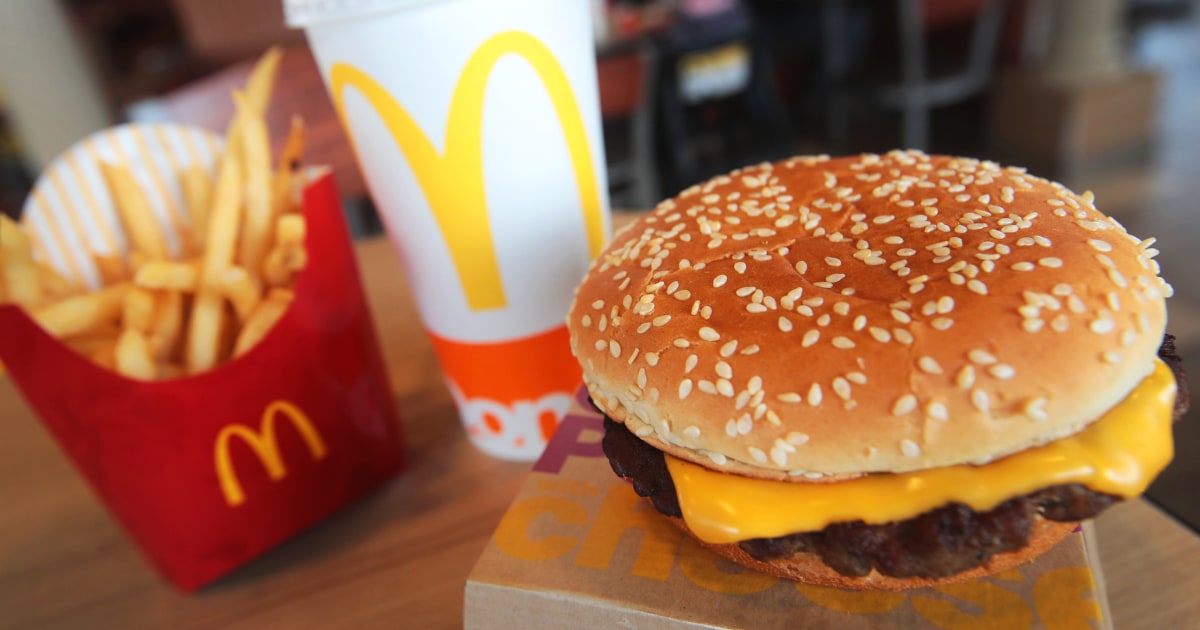E. Coli Outbreak Linked to McDonald’s Quarter Pounders: A Growing Concern
In a troubling development, at least 75 individuals across 13 states have fallen ill after consuming McDonald’s Quarter Pounders, with the Centers for Disease Control and Prevention (CDC) linking these cases to a deadly strain of E. coli. This outbreak has raised alarms among public health officials and consumers alike, as the number of reported cases continues to climb.
The Current Situation
As of the latest reports, the number of confirmed cases has surged from 49 to 75, with 22 individuals hospitalized, up from 10 earlier in the week. Tragically, one death has been attributed to this outbreak, although no new fatalities have been reported since. The CDC has indicated that the increase in cases is expected, as it often takes weeks for investigators to connect illnesses to specific food sources. The most recent reported case occurred on October 10, highlighting the ongoing nature of this health crisis.
Investigating the Source
Public health officials have conducted interviews with 42 affected individuals, all of whom reported eating at McDonald’s prior to becoming ill. Notably, most of these individuals specifically mentioned consuming a Quarter Pounder hamburger. The ages of those affected range from 13 to 88, with a majority being male. Alarmingly, two individuals have developed hemolytic uremic syndrome, a severe kidney condition that can lead to permanent kidney failure or death.
The CDC has warned that the actual number of cases may be significantly higher than reported, as many people recover from E. coli infections without seeking medical attention or being tested for the bacteria. Symptoms of E. coli infection typically manifest three to four days after consuming contaminated food and include vomiting, diarrhea, and fever.
The Likely Culprit: Slivered Onions
In their investigation, the CDC and the Food and Drug Administration (FDA) have identified slivered onions served on the Quarter Pounders as the likely source of contamination. However, they have not completely ruled out the possibility that the beef patties could also be involved. On October 19, McDonald’s confirmed that Taylor Farms, a California-based food producer, supplied the onions linked to the outbreak.
In response to the potential contamination, Taylor Farms issued a recall for four raw onion products. Several restaurant chains in Colorado, including Taco Bell, Burger King, KFC, Pizza Hut, and Illegal Pete’s, have proactively removed onions from their menus as a precautionary measure.
McDonald’s Response
McDonald’s has taken swift action by removing the implicated slivered onions and Quarter Pounder patties from its restaurants in at least 12 states, including Colorado, Kansas, and Wyoming. The CDC has stated that, due to these measures, the risk to the public is now considered low. A spokesperson for McDonald’s revealed that the onions in question had been distributed to approximately 900 restaurants before being pulled from the menu.
Despite these efforts, the exact logistics of how the contaminated onions reached McDonald’s remain unclear. The company has stated that it sources its onion supply directly from Taylor Farms, but it is still investigating whether the onions were transported directly to its locations or through a distributor.
Legal Ramifications
As the situation unfolds, McDonald’s faces legal challenges from individuals who claim to have fallen ill after eating at the fast-food chain. Two lawsuits have already been filed, with a total of 15 individuals represented by Ron Simon, a food safety attorney. These legal actions underscore the serious implications of the outbreak and the potential consequences for the fast-food giant.
Conclusion
The E. coli outbreak linked to McDonald’s Quarter Pounders serves as a stark reminder of the vulnerabilities within the food supply chain. As health officials continue to investigate the source of the contamination, consumers are urged to stay informed and exercise caution. The CDC’s ongoing efforts to track and contain the outbreak highlight the importance of food safety and the need for vigilance in preventing future incidents. As the situation develops, it remains crucial for both consumers and food providers to prioritize health and safety in their practices.
